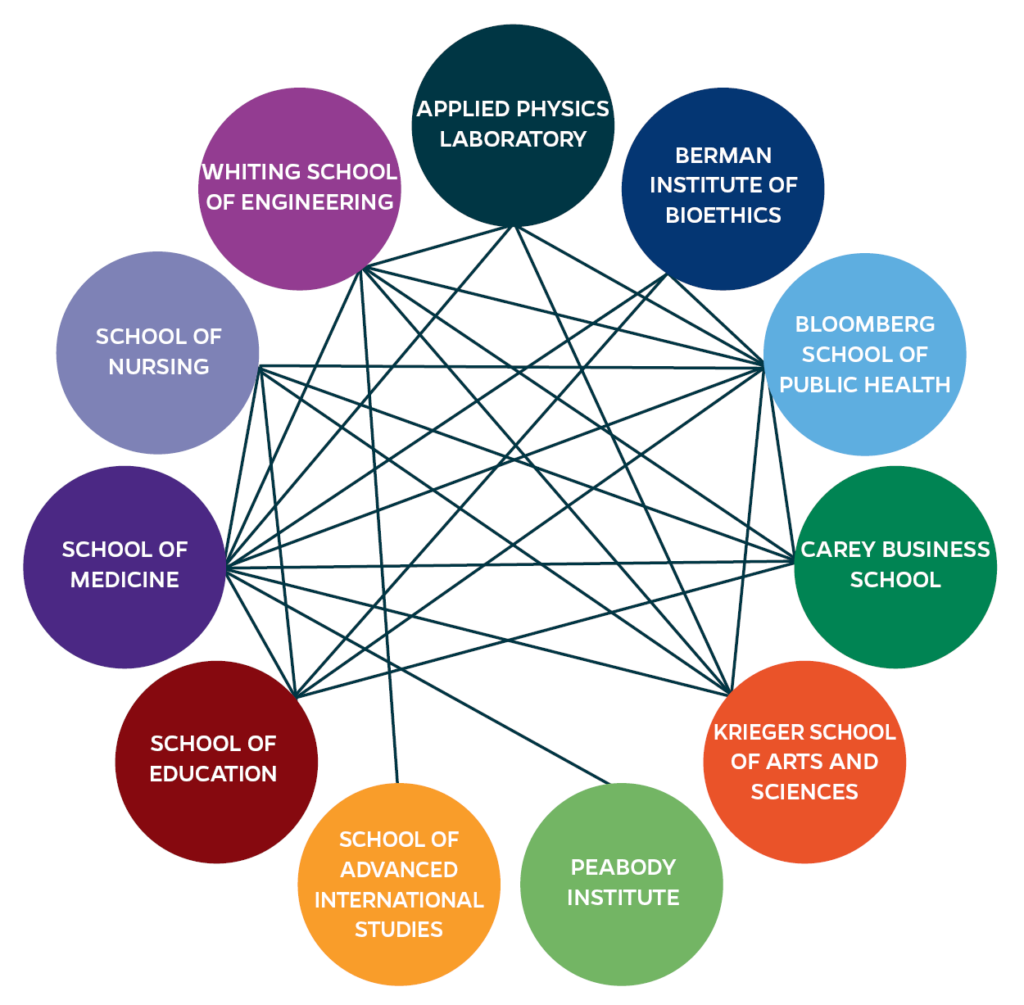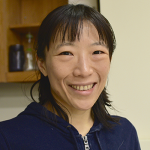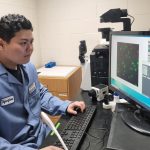INBT Researchers Receive Discovery Awards

Winning interdisciplinary projects, chosen from a record 199 proposals, include 105 individuals from across the university
Assessing exposure to plasticizers and their role in pediatric asthma morbidity. Exploring how Black youth resist police violence via modern social movements. Using artificial intelligence-powered strategies to predict the risk of sudden cardiac death. Fusing the humanities and sciences to better understand our place in the universe. Enabling robots to “feel” through improved tactile sensors.
These are among 35 multidisciplinary endeavors that have been selected to receive support this year from Johns Hopkins University’s Discovery Awards program. Each project team is made up of members from at least two JHU entities who aim to solve a complex problem and expand the horizons of knowledge.
Altogether, the winning project teams—chosen from 199 proposals—include 105 individuals representing 12 Johns Hopkins entities.
“Bold and innovative solutions to the world’s most complex social and scientific problems are rarely relegated to a single field or discipline,” says Ron Daniels, president of Johns Hopkins University. “This year’s Discovery Award proposals harness the deep reservoirs of cross-disciplinary creativity across our university and show how vital the work of our faculty continues to be.”
The Discovery Awards program was announced in early 2015, as was the Catalyst Awards program for early-career researchers. Together the two programs represent a $45 million commitment by university leadership, along with the deans and directors of JHU’s divisions, to faculty-led research.
The Discovery Awards are intended to spark new interactions among investigators across the university rather than to support established projects. Teams can apply for up to $100,000 to explore a new area of collaborative work with special emphasis on preparing for an externally funded large-scale grant or cooperative agreement.
One of the largest collaborations, led by Carmen Alvarez, brings together four experts from Nursing, Medicine, and Public Health, to develop a peer-led program to promote cardiovascular health among adult survivors of adverse childhood experiences (ACEs). In a collaboration bridging the Whiting School and Peabody Institute, James West—whose 1962 invention of the foil electret microphone revolutionized the telephone and recording industries—will work with a team to develop new sensors to improve the sound captured from the double bass.
This year the Discovery Award administrators teamed up with the Ralph O’Connor Sustainable Energy Institute, or ROSEI, to award additional seed funding to projects focused on clean, renewable, and sustainable energies. Sara Thoi’s team will spearhead the development of adsorptive coatings and regenerative technologies for simultaneous atmospheric CO2 and wind power harvesting.
More than 70 faculty members from across the university were called upon for their input.
“The projects selected this year continue the Discovery Award’s tradition of forging innovative partnerships throughout the university,” says Denis Wirtz, vice provost for research. “Our researchers have identified exciting intersections between their fields, and I, along with our expert reviewers, are eager to see their work evolve in the coming year. We appreciate university leadership’s continued support that allows the pursuit of these vital advances in scholarship.”
INBT recipients and projects include:
Injectable Self-illuminating Luciferase-photosensitizer Conjugates for Bioluminescence-based Phototherapy – Jiefu Jin (Medicine), Zaver Bhujwalla (Medicine) & Hai-Quan Mao (Engineering)
Preclinical Coda-guided CT-Scan Imaging of Lung Premetastatic Niches – Franck Housseau (Medicine), Ashley Kiemen (Engineering), Yun Chen (Engineering), Malcolm Brock (Medicine) & Peng Huang (Engineering)
The Next Frontier to Improve Public Health: Exploring the Use of Artificial Intelligence to Assess the Exposome – Fenna Sille (Public Health), Carsten Prasse (Engineering), Brian Caffo (Public Health), Meredith McCormack (Medicine), Thomas Pisanic (Engineering) & Joseph Ali (Berman)
Mechanism-Driven Discovery of Therapeutic Targets for Autosomal Dominant Polycystic Kidney Disease – Paul Welling (Medicine) & Sean Sun (Engineering)
The full list of recipients and their projects is available on the Office of Research website.
Story by the Hub.





